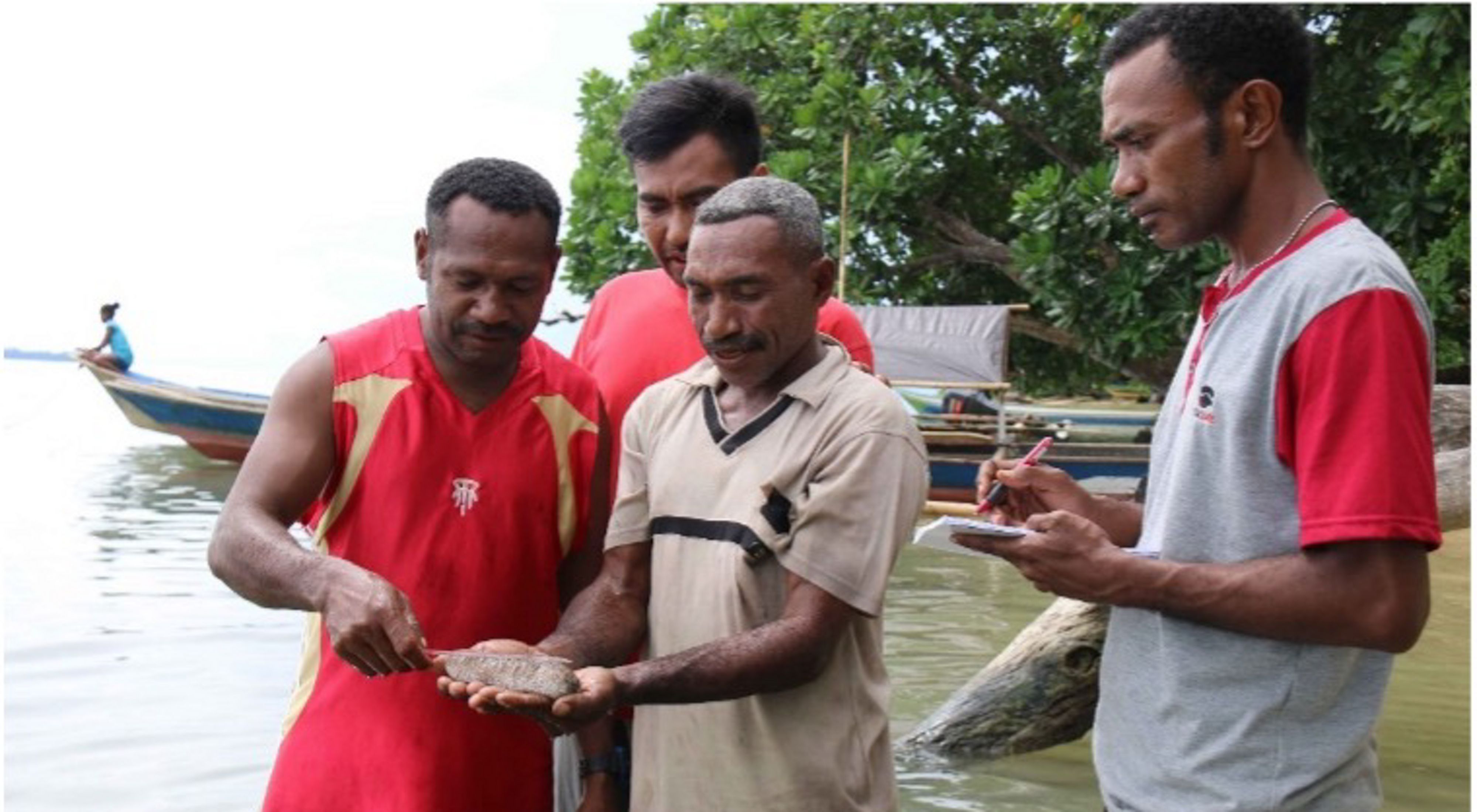Open Sasi in Folley Village, Raja Ampat Regency
Preserving traditions for sustainable Indonesia
Media Contacts
-
Maria Adityasari
Communication Specialist YKAN
Yayasan Konservasi Alam Nusantara (YKAN)
Email: maria.adityasari@ykan.or.id
From November 21 to December 11, 2022, Folley Village, East Misool District, Raja Ampat Regency community will hold an open sea sasi event. The sasi area was opened after being closed for one year. Kampung Folley is one of the villages in Raja Ampat Regency, assisted by Yayasan Konservasi Alam Nusantara (YKAN) and the Maritime Affairs and Fisheries Service of West Papua Province since 2012 in terms of sasi management.

Sasi is one of the traditional practices for managing natural resources in a sustainable manner which is still being implemented today in the Maluku and Papua regions. "One of the efforts that YKAN and partners have made to ensure the sustainability of sasi results is by assisting in monitoring sasi areas with the local community. This aims to determine the exact opening time for sasi and the size of sasi biota that may be harvested," said Bird's Head Seascape Senior Manager YKAN, Lukas Rumetna.
The sasi area in Kampung Folley is in the territory belonging to the Fadimpo and Moom clans. However, people outside the clan and outside Kampung Folley are also allowed to take sasi products like sea cucumbers. "We do not prohibit people from outside Kampung Folley from participating in taking the sasi produce. However, they must follow the rules we have made and agreed upon together," explained the Head of Folley Village, Yefta Mjam.
Those who participate in the sasi harvest must comply with the agreed rules. These rules are: (1). The size of sea cucumbers that are taken is at least 15 cm. (2). To catch sea cucumbers, you must use environmentally friendly tools. (3). Notes on the sale of sea cucumbers must be returned to the committee for the data collection on the results of the sasi opening. (4). The committee will record each catch to ensure the agreed size.
The breaking of sasi begins with worship at the church for a joint prayer followed by traditional rituals to ask permission from their ancestors so that the sasi harvest is abundant. As night falls and the sea water begins to recede, people start flocking to the sasi area to collect sea cucumbers. Usually, they look for sea cucumbers until morning comes. "Our ancestors taught us about the wise use of natural resources through sasi, so we will continue to preserve this sasi culture," said Kampung Folley's traditional leader Leonard Moom.


In Indonesia, there are at least 29 types of sea cucumbers being traded. Over-utilization and high market demand have caused the population in nature to continue to decline, and even some types of sea cucumbers are now infrequent to find. In order to achieve sustainability, sustainable management methods are needed.
At the beginning of the sasi mentoring period in Kampung Folley, only six species of sea cucumbers were found when breaking sasi. However, after sasi management has been carried out in a sustainable manner, currently, 11 types of sea cucumbers can be found. One example of a sea cucumber that has high economic value is the rubbed sea cucumber (Holoturia scabra), whose price in the local market ranges from IDR 600,000 – IDR. 1,000,000/kg dry.

"Conservation in the Bird's Head Seascape area can run effectively because it is supported by a socio-cultural system that is materialized into local policies. One example is sasi. Good sasi management will be able to improve the community's ecological, social, and economic conditions," explained YKAN Indonesia Ocean Program Director Muhammad Ilman.
Yayasan Konservasi Alam Nusantara (YKAN) is a scientific-based non-profit organization that has been present in Indonesia since 2014. With the mission of protecting lands and waters as life support systems, we provide innovative solutions to realize the harmony of nature and humans through effective natural resource management, prioritizing a non-confrontational approach, and building a network of partnerships with all stakeholders for a sustainable Indonesia. For more information, visit ykan.or.id.


